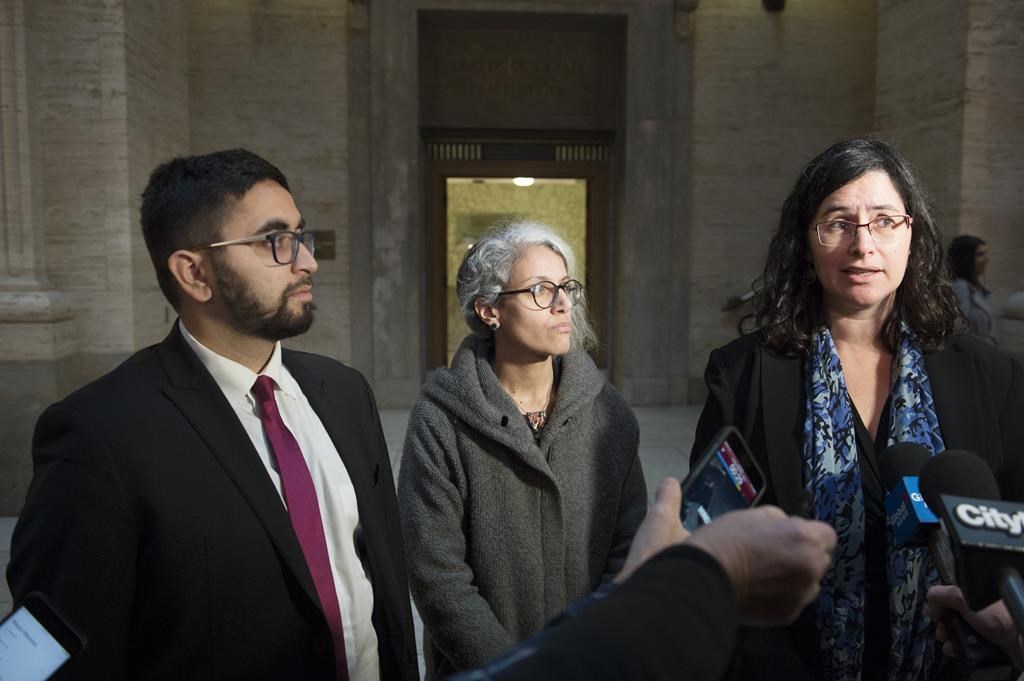A challenge by Canadian civil rights groups and a university student to suspend parts of Quebec’s religious neutrality law will not be heard by the Supreme Court of Canada.

The law, known as Bill 21, bars some public-sector employees — including teachers, police officers and judges — from wearing religious symbols in the workplace. It was adopted in the provincial legislature in June 2019.
The decision comes after the groups sought leave at the Supreme Court after Quebec’s highest court rejected their challenge in December.
At the time, the Quebec Court of Appeal handed down a 2-1 ruling on their application for a stay of the secularism law until a full legal challenge could be heard in Quebec Superior Court.
READ MORE: Quebec’s top court refuses to suspend province’s secularism law
The Charter of Rights and Freedoms’ notwithstanding clause allows governments to shield legislation against court challenges concerning the violation of fundamental rights and freedoms.
The Supreme Court’s rejection to hear the challenge was announced on Thursday. Following its usual practice, the court gave no reason for it decision.
In a statement, the Canadian Civil Liberties Association (CCLA) and the National Council of Canadian Muslims (NCCM) expressed disappointment at the denial but said they plan to continue fighting the law in court.
“We promised to defend Canadian civil liberties and we will continue to keep that promise,” said Mustafa Farooq, executive director of the NCCM.
“This decision, while not the one we were hoping for, is not the end of the battle.”
READ MORE: Quebec’s Bill 21 leads to ‘irreparable harm,’ civil liberties groups tell Court of Appeal
Noa Mendelsohn Aviv, equality program director with the CCLA, said the religious symbol ban has “created unnecessary division and economic hardship.”
“While we are deeply disappointed in this result, our main challenge of the law still lies ahead.”
In their challenge, the groups claimed Bill 21 is discriminatory and leads to “real and substantial harm.” They argue it unfairly targets women and limits employment opportunities.
Quebec Premier François Legault has repeatedly defended the law, saying it maintains support from the majority of citizens.

— With files from the Canadian Press


Comments